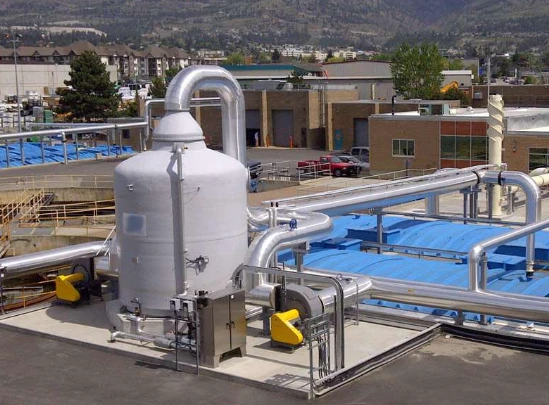
-
 Afrikaans
Afrikaans -
 Albanian
Albanian -
 Amharic
Amharic -
 Arabic
Arabic -
 Armenian
Armenian -
 Azerbaijani
Azerbaijani -
 Basque
Basque -
 Belarusian
Belarusian -
 Bengali
Bengali -
 Bosnian
Bosnian -
 Bulgarian
Bulgarian -
 Catalan
Catalan -
 Cebuano
Cebuano -
 China
China -
 China (Taiwan)
China (Taiwan) -
 Corsican
Corsican -
 Croatian
Croatian -
 Czech
Czech -
 Danish
Danish -
 Dutch
Dutch -
 English
English -
 Esperanto
Esperanto -
 Estonian
Estonian -
 Finnish
Finnish -
 French
French -
 Frisian
Frisian -
 Galician
Galician -
 Georgian
Georgian -
 German
German -
 Greek
Greek -
 Gujarati
Gujarati -
 Haitian Creole
Haitian Creole -
 hausa
hausa -
 hawaiian
hawaiian -
 Hebrew
Hebrew -
 Hindi
Hindi -
 Miao
Miao -
 Hungarian
Hungarian -
 Icelandic
Icelandic -
 igbo
igbo -
 Indonesian
Indonesian -
 irish
irish -
 Italian
Italian -
 Japanese
Japanese -
 Javanese
Javanese -
 Kannada
Kannada -
 kazakh
kazakh -
 Khmer
Khmer -
 Rwandese
Rwandese -
 Korean
Korean -
 Kurdish
Kurdish -
 Kyrgyz
Kyrgyz -
 Lao
Lao -
 Latin
Latin -
 Latvian
Latvian -
 Lithuanian
Lithuanian -
 Luxembourgish
Luxembourgish -
 Macedonian
Macedonian -
 Malgashi
Malgashi -
 Malay
Malay -
 Malayalam
Malayalam -
 Maltese
Maltese -
 Maori
Maori -
 Marathi
Marathi -
 Mongolian
Mongolian -
 Myanmar
Myanmar -
 Nepali
Nepali -
 Norwegian
Norwegian -
 Norwegian
Norwegian -
 Occitan
Occitan -
 Pashto
Pashto -
 Persian
Persian -
 Polish
Polish -
 Portuguese
Portuguese -
 Punjabi
Punjabi -
 Romanian
Romanian -
 Russian
Russian -
 Samoan
Samoan -
 Scottish Gaelic
Scottish Gaelic -
 Serbian
Serbian -
 Sesotho
Sesotho -
 Shona
Shona -
 Sindhi
Sindhi -
 Sinhala
Sinhala -
 Slovak
Slovak -
 Slovenian
Slovenian -
 Somali
Somali -
 Spanish
Spanish -
 Sundanese
Sundanese -
 Swahili
Swahili -
 Swedish
Swedish -
 Tagalog
Tagalog -
 Tajik
Tajik -
 Tamil
Tamil -
 Tatar
Tatar -
 Telugu
Telugu -
 Thai
Thai -
 Turkish
Turkish -
 Turkmen
Turkmen -
 Ukrainian
Ukrainian -
 Urdu
Urdu -
 Uighur
Uighur -
 Uzbek
Uzbek -
 Vietnamese
Vietnamese -
 Welsh
Welsh -
 Bantu
Bantu -
 Yiddish
Yiddish -
 Yoruba
Yoruba -
 Zulu
Zulu
Innovative Fiberglass Weirs for Sustainable Water Management Solutions and Environmental Conservation
Understanding Fiberglass Weirs An Overview
In the realm of water management and environmental engineering, fiberglass weirs have emerged as a prominent solution for flow measurement and control. These structures, made predominantly of fiberglass reinforced polymer (FRP), combine durability, efficiency, and versatility, making them suitable for various applications, including wastewater treatment plants, irrigation systems, and ecological monitoring.
What is a Fiberglass Weir?
A weir is a barrier across a river or stream designed to alter its flow characteristics. In engineering terms, a fiberglass weir is a type of flow measurement device that accurately measures the flow of water passing over its structure. Unlike traditional weirs made from concrete or metal, fiberglass weirs are lightweight, resistant to corrosion, and easier to install, making them an attractive choice for engineers and environmental managers alike.
Advantages of Fiberglass Weirs
1. Corrosion Resistance One of the most significant advantages of fiberglass weirs is their excellent resistance to corrosion, especially in harsh environments such as industrial wastewater facilities. Traditional materials like steel can rust and decay over time, leading to costly maintenance and replacements. In contrast, fiberglass weirs withstand exposure to chemicals and adverse weather conditions, ensuring longevity and reliability.
2. Lightweight and Easy Installation Fiberglass weirs are significantly lighter than traditional materials, allowing for easier transport and installation. This characteristic is particularly beneficial in remote locations or areas where heavy machinery is challenging to deploy. They can often be installed by a small team with minimal equipment, reducing both labor and installation costs.
fiberglass weir

3. Versatility Fiberglass weirs can be manufactured in various shapes and sizes to meet specific project requirements. They can be designed as V-notch, rectangular, or broad-crested weirs, depending on the flow conditions and the accuracy needed for measurement. This adaptability makes them suitable for diverse applications, from measuring flow in small streams to managing inflow and outflow in larger water bodies.
4. Low Maintenance Due to their durability and resistance to fouling and scaling, fiberglass weirs require less maintenance compared to their conventional counterparts. This low upkeep translates into savings over time, making them a cost-effective choice for municipal and industrial applications.
5. Environmental Benefits Fiberglass weirs are produced using materials that can be tailored to minimize environmental impact. They can be integrated into existing ecosystems with little disruption, promoting sustainable water management practices. Moreover, their robust construction ensures that they do not contribute to pollution or water quality issues.
Applications of Fiberglass Weirs
Fiberglass weirs find utility in various sectors. In wastewater treatment plants, they are essential for controlling and measuring influent and effluent flows, helping engineers determine treatment effectiveness. In agricultural settings, weirs manage irrigation systems, ensuring efficient water distribution to crops while conserving water resources. Additionally, they play a pivotal role in ecological studies, where monitoring natural waterways helps assess the health of aquatic ecosystems.
Conclusion
In summary, fiberglass weirs represent a modern solution for water flow measurement and management. Their combination of durability, lightweight construction, low maintenance, and versatility positions them as an essential tool for engineers and environmentalists. As water management becomes increasingly critical in the face of climate change and growing populations, the adoption of innovative solutions like fiberglass weirs will be vital in ensuring sustainable and efficient water use. With their myriad benefits, it is clear that fiberglass weirs will continue to play a crucial role in the future of water resource management.
Latest news
-
Exploring the Benefits of Top Hammer Drifter Rods for Enhanced Drilling PerformanceNewsJun.10,2025
-
High-Precision Fiberglass Winding Machine for GRP/FRP Pipe Production – Reliable & Efficient SolutionsNewsJun.10,2025
-
FRP Pipes & Fittings for Shipbuilding - Corrosion-Resistant & LightweightNewsJun.09,2025
-
Premium FRP Flooring Solutions Durable & Slip-ResistantNewsJun.09,2025
-
Premium Fiberglass Rectangular Tanks Durable & Lightweight SolutionNewsJun.09,2025
-
Tapered Drill String Design Guide Durable Performance & UsesNewsJun.09,2025









